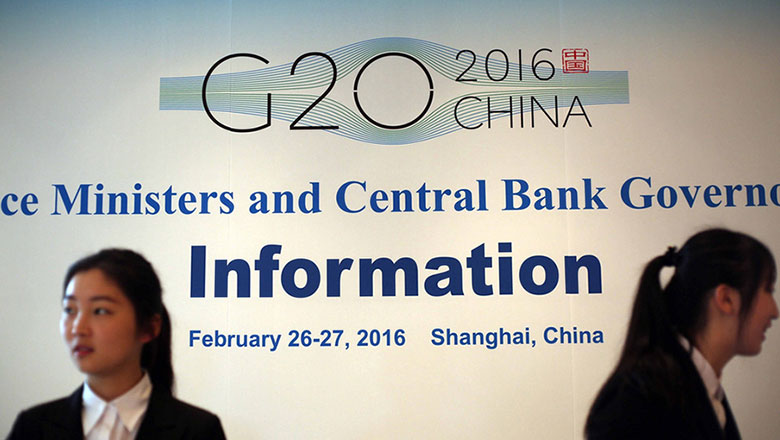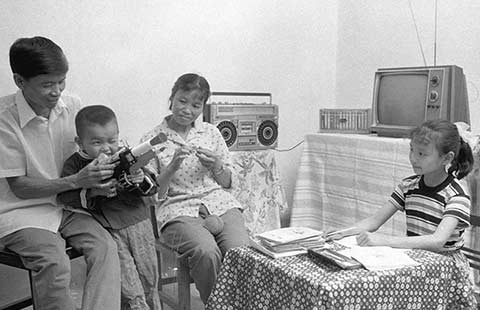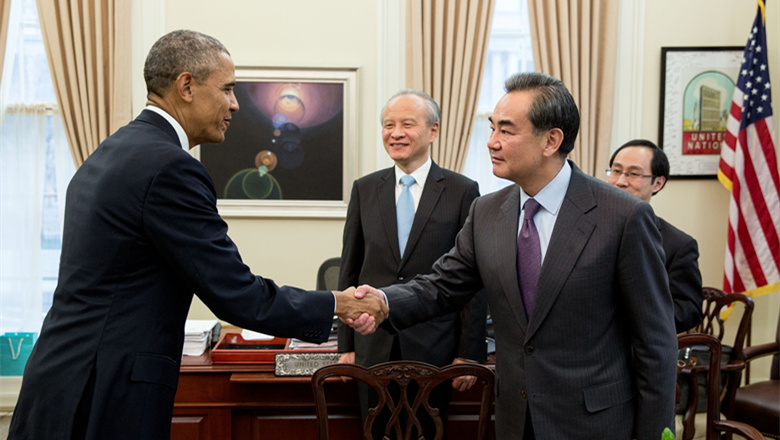UN resolution should not affect DPRK people's daily life
Updated: 2016-02-26 19:43
(Xinhua)
|
||||||||
BEIJING -- The UN Security Council's upcoming resolution should not affect the everyday life of people in the Democratic People's Republic of Korea (DPRK), a Chinese Foreign Ministry spokesperson said on Friday.
The United States on Thursday introduced a draft resolution to the UN Security Council that would sharply enhance sanctions against the DPRK for its recent nuclear test and a subsequent satellite launch that violated previous resolutions.
The UN resolution should aim to prevent the DPRK from developing its nuclear and missile programs, spokesperson Hong Lei said at a daily news briefing, noting that the sanctions should not affect the daily lives of the DPRK's people.
Important progress has been made in the UN Security Council's consultations on the new resolution against the DPRK, which is expected to be adopted in the coming days, Chinese Foreign Minister Wang Yi said in Washington earlier this week.
The UN Security Council's resolution cannot provide the fundamental solution to the Korean nuclear issue, and relevant parties need to return to dialogue and negotiation, Hong said.
He said the Chinese side has proposed parallel tracks, which involve denuclearization of the Korean Peninsula and the replacement of the Korean armistice with a peace agreement.
The China-proposed parallel-track approach highlights the overriding goal of denuclearizing the peninsula while addressing the concerns of various parties and helping to realize long-lasting peace and stability on the Korean Peninsula, Hong said.
As a permanent member of the UN Security Council, China has consistently fulfilled its obligations to the international community, Hong said, calling on parties concerned to fully implement the UN's new resolution.
Hong also called for bringing the Korean Peninsula nuclear issue back to the track of dialogue and negotiation and promoting the resumption of six-party talks, which include the DPRK, the ROK, the United States, China, Japan and Russia.
- Venezuela, Qatar, Saudi Arabia, Russia to meet to stabilize oil market
- Gunman kills up to four in Kansas shooting spree
- Apple fights back in court, refusing to hack into iPhone for FBI
- Chinese may pursue Paramount stake
- S. Korea, US to launch working group on THAAD
- All bodies of plane crash victims recovered in Nepal

 Things you should know about the 2016 G20 meeting
Things you should know about the 2016 G20 meeting
 Walk down memory lane: Rural China in 1980s
Walk down memory lane: Rural China in 1980s
 A woman's artistic life
A woman's artistic life
 Milan fashion week opens with eclectic, embellished looks
Milan fashion week opens with eclectic, embellished looks
 Plastic-shirted Afghan boy gets signed jersey from Messi
Plastic-shirted Afghan boy gets signed jersey from Messi
 Adele steals the show at 2016 BRIT Awards
Adele steals the show at 2016 BRIT Awards
 US President Obama meets with Foreign Minister Wang Yi
US President Obama meets with Foreign Minister Wang Yi
 Elders, children cope alone in village after Spring Festival reunion
Elders, children cope alone in village after Spring Festival reunion
Most Viewed
Editor's Picks

|

|

|

|

|

|
Today's Top News
What ends Jeb Bush's White House hopes
Investigation for Nicolas's campaign
Will US-ASEAN meeting be good for region?
Accentuate the positive in Sino-US relations
Dangerous games on peninsula will have no winner
National Art Museum showing 400 puppets in new exhibition
Finest Chinese porcelains expected to fetch over $28 million
Monkey portraits by Chinese ink painting masters
US Weekly

|

|








